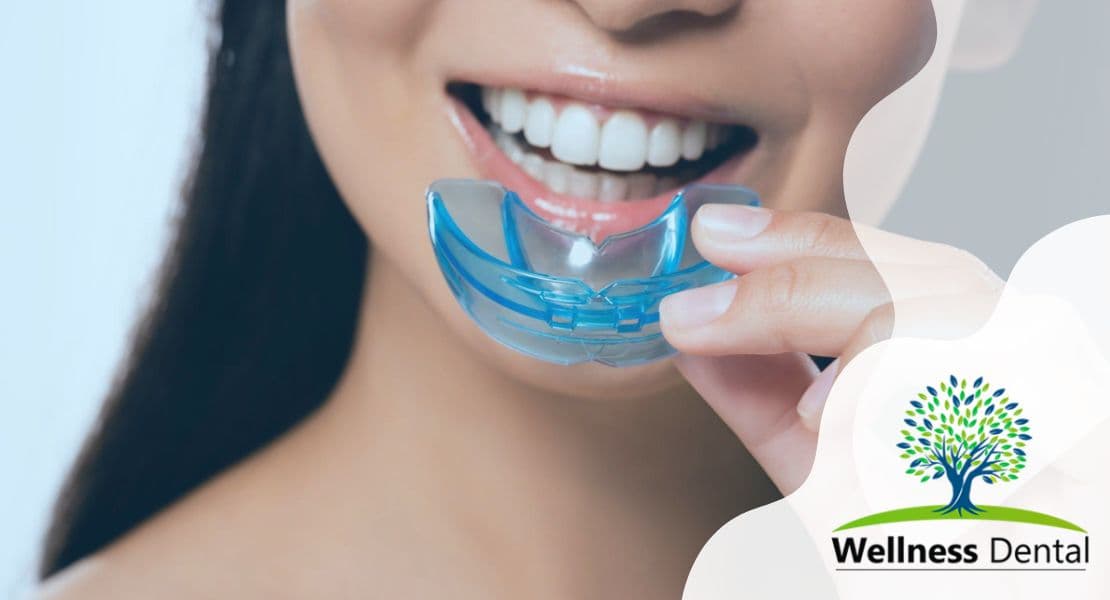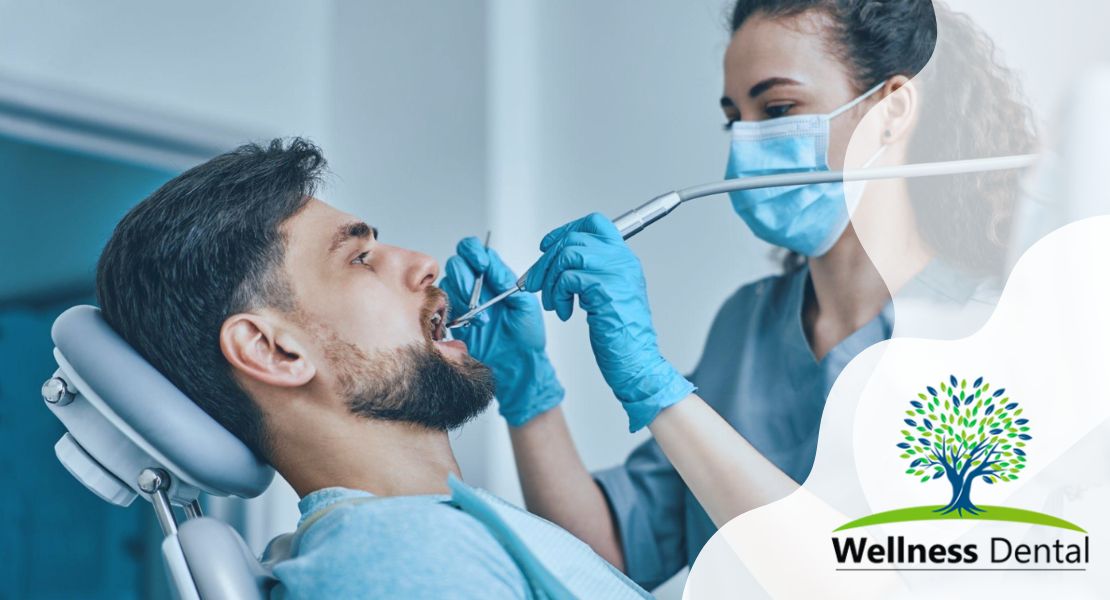Mouthguards protect not only your teeth but your overall oral health. With millions of people at risk from sports, bruxism, or sleep apnea, understanding how mouthguards work and what types there are becomes more important. These can be the difference between a healthy smile and expensive dental damage.
There are many types of mouthguards out there, from custom-made for individual needs to off-the-shelf. Each type is for a purpose, from high-impact sports to bruxism where teeth grinding can cause many dental problems. Navigating these can be overwhelming without knowledge.
What are Mouthguards?
A mouthguard is a dental appliance that protects the teeth, gums, and soft tissues of the mouth from dental injuries during contact sports and recreational activities. Mouthguards can reduce the risk of injury such as broken teeth, tooth loss, jaw pain, and soft tissue damage.
There are many types of mouthguards:
- Stock mouthguards: Pre-formed and ready to wear, but often bulky and provide minimal protection.
- Boil-and-bite mouthguards: Made from thermoplastic material and can be customized at home by boiling in hot water and then biting into the softened material for a better fit.
- Custom-fitted mouthguards: Made by a dental professional, provides the best protection, fit, and comfort compared to others.
Mouthguards need to be cleaned with soapy water and stored away from direct sunlight and hot water to maintain its shape. Signs of wear means it’s time to replace the guard.
Used as a bite splint, night guard, or during sports like ice hockey, a mouthguard is a dental device to protect against dental trauma. Custom-made mouthguards are recommended for the best fit.
Types of Mouthguards
Mouthguards is a dental guard for anyone who participate in activities that has a risk of dental injury. There are many types of mouthguards, each offering a different level of protection, comfort, and customization. The main categories are stock mouthguards, boil-and-bite mouthguard, and custom-fitted or custom-made mouthguards. Each type serves a purpose and cater to different needs and budget.
Custom-made mouthguards
Custom-made mouthguards are the gold standard when it comes to dental protection. These are made by dental professionals using an impression of the individual’s teeth, so it’s a precise fit. Because it’s tailored to the exact contours of the teeth and mouth, it’s more comfortable and protective. Less obstructive and allow easier breathing and communication. Custom mouthguards is ideal for athletes or individuals who needs high impact protection or have specific dental concerns.
Boil-and-bite mouthguards
Boil-and-bite mouthguards are a middle ground between stock and custom-made. Made of thermoplastic material, it becomes soft when placed in hot water. After cooling it slightly, you can bite down on the softened mouthguard and it will mold to the contours of your teeth and gums.
Not as precise as custom-made mouthguards but more individualized than stock mouthguards. Available at many sporting goods stores and pharmacies, it’s a convenient option for quick protection.
Non-molded mouthguards
Non-molded mouthguards or stock mouthguards is the most available and affordable type. These pre-formed appliances don’t need customization and can be used straight from the package. But their generic shape will result to less comfortable fit, difficulty in breathing, and less protection. Stock mouthguards are bulkier and can easily dislodge during physical activity, not a good option for those who needs reliable dental defense.
Applications of Mouthguards
Sports
In contact sports like football, basketball, and ice hockey, mouthguards is a crucial protective gear. These activities puts players at high risk of injury from blows to the face which can cause dental trauma. Wearing a mouthguard will absorb and dissipate the force of any impact and minimize the risk of dental injury.
Both store-bought and custom mouthguards are used in sports, and each type offers a different level of protection. Custom-made mouthguards may be more expensive but it’s the best fit and protection as it’s tailored to the individual’s dental anatomy.
Bruxism Management
Bruxism or teeth grinding is a condition that affects many, often causing jaw pain, headaches, and tooth wear. A mouthguard or night guard can play a big role in managing symptoms by acting as a barrier between the upper and lower teeth. This will prevent the teeth from grinding and distribute the pressure evenly, reducing the strain on the jaw muscles and joints.
Sleep Apnea
In some cases, a specially designed dental device similar to a mouthguard is prescribed for sleep apnea, a condition where you stop breathing during sleep. These devices work by keeping the airway open, often by moving the jaw slightly forward to facilitate better airflow during sleep. These appliances is considered as an alternative to Continuous Positive Airway Pressure (CPAP) therapy and must be custom-fitted by a dental professional who is experienced in treating sleep disorders.
Dental Injuries
Mouthguards is essential in preventing dental injuries in all activities. It’s designed to cushion a blow to the face, distribute the force of impact away from the teeth and bones, and reduce the risk of broken teeth and injuries to the lips, tongue, and cheek lining. Dentists recommend wearing a dental guard in any activity that puts your mouth at risk, even non-contact sports and recreational activities like skateboarding or mountain biking.
In summary, mouthguards are good for oral health, preventing dental injuries during physical activities, managing bruxism, and treating sleep apnea. Custom-made mouthguards is preferred for its better fit and protection level, although there are several types of mouthguards available to fit your needs and budget. Regular cleaning with soapy water and inspection for signs of wear will ensure the long-term effectiveness of these dental devices.
How Mouthguards are Made
A mouthguard is a dental appliance used to protect the teeth and gums from injury. They are used in contact sports and recreational activities that puts your face at risk. Making a custom-made mouthguard involves several steps:
- Impression Taking: A dentist takes an impression of the upper teeth of the wearer which will be used as a mold for the mouthguard.
- Model Creation: A plaster model of the teeth is created from the impression.
- Thermoplastic Material: A sheet of thermoplastic material is heated until it becomes soft and is then placed over the model of the teeth.
- Shaping: While the material is soft, it’s shaped to fit the model precisely using a combination of pressure and heat.
- Trimming and Finishing: After the mouthguard is formed, it’s trimmed and polished to ensure a comfortable fit that won’t irritate the soft tissues.
- Quality Check: The final product is checked for defects and proper fit.
This custom-fitting process is what makes custom-made mouthguards different from store-bought mouthguards like Stock mouthguards and Boil-and-bite mouthguards which has a more general fit. Custom-made mouthguards is more comfortable and protective but takes more time and labor to produce.
Why Wear Mouthguards
Mouthguards is a vital dental device for individuals who are into activities that puts their mouth at risk. The benefits of wearing a mouthguard goes beyond just protecting the teeth; it can also benefit the overall oral health and can even affect athletic performance.
For both adults and children who are into sports or other recreational activities, mouthguards can contribute to good dental health. Here are the benefits mouthguards offer.
Dental Health Protection
The main purpose of a mouthguard is to protect against dental injuries such as broken teeth, tooth loss and damage to the soft tissues of the mouth including lips, gums and cheeks. By absorbing and distributing the force of impact that might otherwise cause severe damage, mouthguards can prevent the need for complex and expensive dental procedures.
A custom-fitted, custom-made mouth guard is most effective in providing maximum protection as it covers the upper teeth completely and firmly which are most at risk during impact.
Jaw Pain Relief
Wearing a mouthguard can also help alleviate jaw pain caused by clenching or grinding of teeth and from physical activities. The cushioning effect of a mouthguard distributes the stress on the jaw joints and muscles thus reducing the likelihood of jaw pain and associated disorders. For those who have bruxism or temporomandibular joint disorder (TMJ), a type of mouthguard called bite splint or night guard can be very helpful.
Athletic Performance
While the main purpose of a mouthguard is protection, some athletes reported that they perform better when wearing one. Mouthguards can help relax the face and jaw muscles thus allowing the athlete to focus and concentrate better. This relaxation can also help in more efficient breathing during intense physical activities. Though research is limited and results may vary, the potential of mouthguards to improve athletic performance is a good enough reason for athletes to wear them regularly.
When choosing a mouthguard, consider the comfort, fit, and the specific needs of the sport or activity. This dental appliance should be cleaned with soapy water and kept away from direct sunlight and hot water to prevent distortion. It should also be checked regularly for signs of wear and replaced when necessary. Whether you choose a stock mouthguard, Boil-and-bite or custom-fitted, wearing one can reduce the risk of injury and contribute to a healthier, more comfortable, and maybe even better athletic experience.
Mouthguard Care and Cleaning
Here are the simple guidelines:
- Rinse Before and After Use: Rinse the mouthguard with cold or lukewarm water before and after each use to remove debris. Never use hot water.
- Clean Regularly: Clean the mouthguard with a toothbrush and soapy water after use. You can also use mouth rinse or mouthguard cleaning solutions.
- Dry Completely: After cleaning, let the mouthguard air dry completely to prevent bacterial growth.
- Check for Wear: Check the mouthguard regularly for signs of wear. If it becomes deformed or has holes, replace it as its protective capabilities may be compromised.
- Proper Storage: Store the mouthguard in a firm, ventilated case away from direct sunlight. Extreme temperatures can distort the shape of the guard.
By following these guidelines you can extend the life of your mouthguard and oral hygiene.
Night Guards vs. Standard Mouthguards
A mouthguard is a dental device designed to protect the teeth, gums, and jaw during physical activities and for those who have bruxism (teeth grinding). When comparing night guards and standard mouthguards, their purpose and design are different.
Night guards also known as dental guards or bite splints are custom-fitted dental appliances for those who grind their teeth at night. They relieve jaw pain and prevent tooth damage from grinding.
Standard mouthguards including Stock mouthguards, Boil-and-bite mouthguard, and custom-made mouthguards are for dental protection during contact sports or recreational activities. They are designed to protect the upper teeth from direct impact, reducing the risk of injury, broken teeth, and tooth loss.
Caring for both types of mouthguards is the same, rinse with soapy water and check for wear. Neither should be exposed to hot water or direct sunlight. Custom-made mouthguards in both categories have the most precise fit but are more expensive than store-bought ones.
Mouthguard Cost
When buying a mouthguard, consider the different costs associated with each type of mouthguard. The cost can vary greatly depending on the materials used, the level of customization, and where you buy it.
Also, the intended use – sport, recreational activities, or night guard for bruxism – can affect the price. You also need to consider the cost of replacement over time as mouthguards can wear out or no longer fit due to dental changes.
Price Range for Each Type of Mouthguard
- Stock Mouthguards: Preformed mouthguards can cost from $5 to $40. They are the cheapest but also the least protective and comfortable due to the generic fit.
- Boil-and-Bite Mouthguards: Thermoplastic material mouthguards cost between $10 to $70. They are better than stock mouthguards as they can be molded slightly to the individual’s teeth after being softened in hot water.
- Custom-Fitted Mouthguards: Made by dental professionals, custom mouthguards are the most expensive, ranging from $100 to $500. The process involves taking an impression of the teeth and then building the mouthguard to fit perfectly. Custom-fitted mouthguards are the most protective and comfortable.
Please note that these are general estimates and prices may vary depending on the retailer, brand and location.
Mouthguard Insurance
Mouthguard insurance coverage varies by provider and policy. Some dental insurance plans may cover custom-fitted mouthguards if it’s considered a necessary preventative measure for dental health or prescribed by a dentist. But over-the-counter options like stock and Boil-and-Bite mouthguards are not covered by insurance.
Check your policy or contact your insurance provider to see if you’re eligible. Be prepared to provide documentation or a prescription from your dentist. If covered, also find out the extent of coverage and if there’s a limit on replacement.





